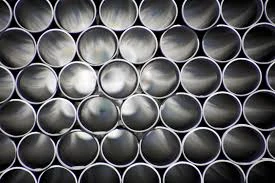
-
 Afrikaans
Afrikaans -
 Albanian
Albanian -
 Amharic
Amharic -
 Arabic
Arabic -
 Armenian
Armenian -
 Azerbaijani
Azerbaijani -
 Basque
Basque -
 Belarusian
Belarusian -
 Bengali
Bengali -
 Bosnian
Bosnian -
 Bulgarian
Bulgarian -
 Catalan
Catalan -
 Cebuano
Cebuano -
 China
China -
 China (Taiwan)
China (Taiwan) -
 Corsican
Corsican -
 Croatian
Croatian -
 Czech
Czech -
 Danish
Danish -
 Dutch
Dutch -
 English
English -
 Esperanto
Esperanto -
 Estonian
Estonian -
 Finnish
Finnish -
 French
French -
 Frisian
Frisian -
 Galician
Galician -
 Georgian
Georgian -
 German
German -
 Greek
Greek -
 Gujarati
Gujarati -
 Haitian Creole
Haitian Creole -
 hausa
hausa -
 hawaiian
hawaiian -
 Hebrew
Hebrew -
 Hindi
Hindi -
 Miao
Miao -
 Hungarian
Hungarian -
 Icelandic
Icelandic -
 igbo
igbo -
 Indonesian
Indonesian -
 irish
irish -
 Italian
Italian -
 Japanese
Japanese -
 Javanese
Javanese -
 Kannada
Kannada -
 kazakh
kazakh -
 Khmer
Khmer -
 Rwandese
Rwandese -
 Korean
Korean -
 Kurdish
Kurdish -
 Kyrgyz
Kyrgyz -
 Lao
Lao -
 Latin
Latin -
 Latvian
Latvian -
 Lithuanian
Lithuanian -
 Luxembourgish
Luxembourgish -
 Macedonian
Macedonian -
 Malgashi
Malgashi -
 Malay
Malay -
 Malayalam
Malayalam -
 Maltese
Maltese -
 Maori
Maori -
 Marathi
Marathi -
 Mongolian
Mongolian -
 Myanmar
Myanmar -
 Nepali
Nepali -
 Norwegian
Norwegian -
 Norwegian
Norwegian -
 Occitan
Occitan -
 Pashto
Pashto -
 Persian
Persian -
 Polish
Polish -
 Portuguese
Portuguese -
 Punjabi
Punjabi -
 Romanian
Romanian -
 Russian
Russian -
 Samoan
Samoan -
 Scottish Gaelic
Scottish Gaelic -
 Serbian
Serbian -
 Sesotho
Sesotho -
 Shona
Shona -
 Sindhi
Sindhi -
 Sinhala
Sinhala -
 Slovak
Slovak -
 Slovenian
Slovenian -
 Somali
Somali -
 Spanish
Spanish -
 Sundanese
Sundanese -
 Swahili
Swahili -
 Swedish
Swedish -
 Tagalog
Tagalog -
 Tajik
Tajik -
 Tamil
Tamil -
 Tatar
Tatar -
 Telugu
Telugu -
 Thai
Thai -
 Turkish
Turkish -
 Turkmen
Turkmen -
 Ukrainian
Ukrainian -
 Urdu
Urdu -
 Uighur
Uighur -
 Uzbek
Uzbek -
 Vietnamese
Vietnamese -
 Welsh
Welsh -
 Bantu
Bantu -
 Yiddish
Yiddish -
 Yoruba
Yoruba -
 Zulu
Zulu
frp vessel
FRP (Fiber Reinforced Polymer) vessels are becoming increasingly popular in various industries due to their exceptional properties and versatility. These advanced composite structures are made by combining a polymer matrix with reinforcing fibers, typically glass or carbon fibers. This unique composition imparts FRP vessels with a range of advantages over traditional materials such as metal or concrete.
One of the most significant benefits of FRP vessels is their lightweight nature. Compared to steel or concrete, FRP is considerably lighter, which can lead to reduced transportation costs and easier installation. This characteristic is particularly advantageous in applications where weight is a critical factor, such as in the marine and aerospace industries. The reduced weight also allows for lower structural support requirements, making it feasible to construct larger vessels without compromising safety or integrity.
.
Moreover, FRP vessels are highly customizable. Manufacturers can tailor the material's properties by adjusting the type and orientation of the fibers and the resin used in the composite. This adaptability enables the production of vessels that meet specific requirements for different applications, whether it be for holding chemicals, water storage, or even structural components in construction. Consequently, industries can take advantage of tailored solutions that enhance efficiency and functionality.
frp vessel

Another noteworthy aspect of FRP vessels is their impact resistance. The combination of reinforcing fibers and resin provides excellent fracture toughness, making these vessels more resistant to damage from impacts compared to traditional materials. This property is particularly beneficial in environments where vessels may be subject to physical stress or impacts.
Lastly, the environmental impact of manufacturing and using FRP vessels is relatively low. Many manufacturers are now adopting eco-friendly practices, and FRP can be produced with sustainable materials, further contributing to a reduced carbon footprint. Moreover, the longevity and recyclability of FRP materials enhance their sustainability credentials.
In conclusion, FRP vessels represent a significant advancement in materials technology. Their lightweight, corrosion-resistant, customizable, impact-resistant, and environmentally friendly properties make them an attractive option across a variety of industries. As the demand for innovative and efficient solutions continues to grow, FRP vessels are poised to play a key role in shaping the future of material applications.









